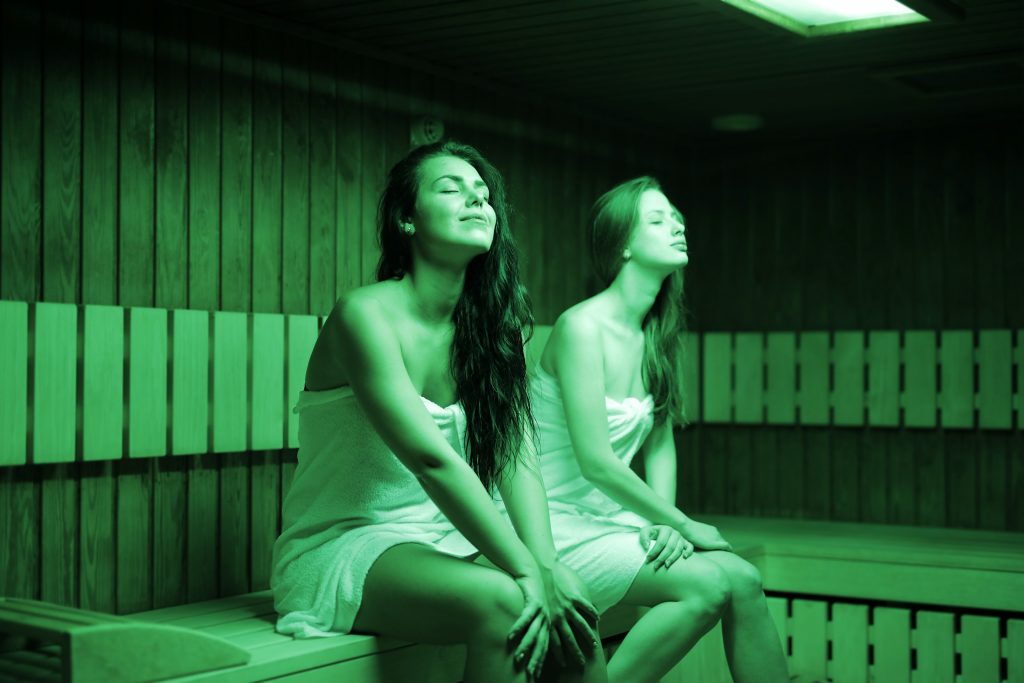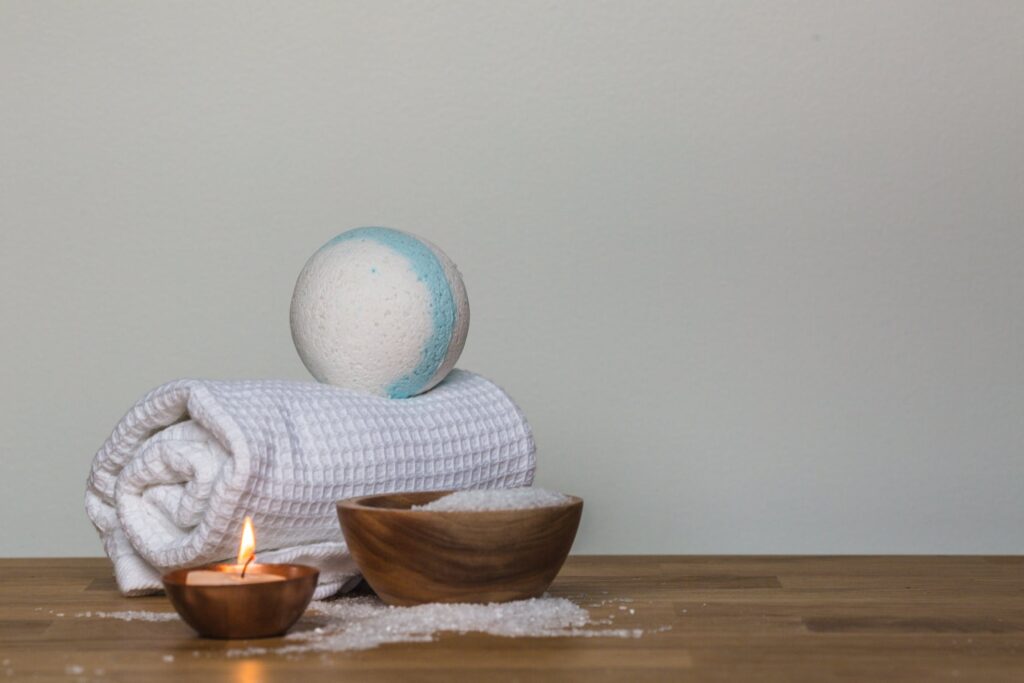The sauna has been utilized for the purpose of refreshing and revitalizing the body for as long as anybody can remember, and its use remains immensely popular today. The use of a sauna bath can assist in the process of purifying and detoxing the body. Additionally, it possesses properties that are advantageous to the skin and the cardiovascular system. However, there are drawbacks associated with it as well.
Burns can occur in a sauna either because of the extremely high temperature of the bath or because of unintentional contact with the tubs that hold very hot water. The hot, humid environment can cause one to have feelings of thirst. If you don't drink enough water or other fluids, you could end up dehydrated. However, caution should be exercised before consuming the water that is readily available there. It's possible that the water isn't clean enough to drink, and drinking it could make you sick with diarrhea.
In men, the testicles will become warmer in tandem with the rest of the body as they warm up. This may result in a lower total number of sperm. Studies have indicated that a single session in a sauna can reduce the number of sperm in the sample, but that number returns to normal after 5 weeks. Even while this effect can be reversed, repeated exposure to saunas may have a negative impact on a man's fertility. Sauna use should be avoided by pregnant women since it may result in problems in the embryo or fetus.
When combined with the high temperature and the high humidity, the environment of a sauna is ideal for the growth of fungi. When a person's immune system is compromised, they have a higher risk of developing fungal infections of the feet and/or toenails.
The average temperature at which the human body is designed to function is 98.4 degrees, although it can handle temperatures that are somewhat higher. However, prolonged exposure to temperatures of approximately 100 degrees Fahrenheit or above can be harmful and may be a potential health risk. Before visiting a sauna, people who have high blood pressure or cardiac problems should make an appointment with their primary care physician.
The usage of saunas as a kind of treatment has a long history in Scandinavia and is widely regarded as a highly beneficial pastime for one's health. According to research, it offers several advantages, particularly for people who have problems with their cardiovascular systems or skin disorders. In addition, there is evidence to support the use of saunas for the purpose of purifying and detoxifying the body.
Anyone who spends an excessive amount of time in a sauna—typically more than half an hour—runs the risk of experiencing a variety of undesirable side effects, some of which are universal in nature. These effects include dehydration caused by excessive perspiration and an inadequate intake of fluids, overheating that can lead to heatstroke or heat exhaustion, or mineral depletion, which causes you to lose important electrolytes and minerals because of excessive sweating. Other possible complications include overheating which can lead to heatstroke or heat exhaustion.
FAQs About Sauna
All that sweating will dehydrate you, so make a point to drink plenty of water after your sauna session. You'll also want to replenish your electrolytes. Finally, people with heart conditions should check with their doctor before trying a sauna.
At least one liter of water should be taken after immediately after the bathing to restore water balance in the body. Drinking too little water the next day can cause headaches and poor feeling in the body.
The steamy environment in your favorite spa has the potential to cause a few issues, said Robin Evans, a dermatologist based in Stamford, Connecticut. Bacteria thrive in warm and moist areas, making a steam room a hot spot for risky organisms.
Because they use mostly dry heat, saunas are largely self cleaning. As simple as they are to keep clean, there is no end to the amount of enjoyment you can derive from your home sauna!
Contraindications to sauna bathing include unstable angina pectoris, recent myocardial infarction, and severe aortic stenosis. Sauna bathing is safe, however, for most people with coronary heart disease with stable angina pectoris or old myocardial infarction.
Avoid the polar plunge
After spending time in the sauna, many people, particularly those who live in areas that experience cold weather, will go for a swim in water that is intentionally kept below freezing. This results in a jolt that may be stimulating and revitalizing. However, people who have heart problems or other cardiovascular concerns should avoid the sudden change in temperature because it could put them in danger of developing further health problems.
If you have hypertension, the American Heart Association recommends that you exercise caution when using a sauna or steam room because the heat can exacerbate the condition. You may experience chest pain or shortness of breath as a result of the heat from the sauna, which causes your heart rate to increase and causes your blood vessels to widen. If you are able to keep your blood pressure under control, you should feel comfortable using a steam room; but, if you begin to feel uneasy, you should leave the room immediately. In addition, if you have recently suffered a heart attack, you should steer clear of steam rooms and saunas as much as possible. If you have issues with your heart or blood pressure, you should never go from a hot sauna to a very cold bath in rapid succession.
Chronic Illness
The problems of some chronic illnesses, such as fibromyalgia, may be relieved by using a steam room; nevertheless, the usage of a steam room may exacerbate the symptoms of other conditions. If the mucus and other particles in your lungs and bronchial tubes are loosened up by the steam, you may experience a worsening of your asthma symptoms. If you have a skin disease that is persistent, going into a steam room could cause a thermal burn, which could result in a variety of unpleasant side effects, including infection and pain. If you have any kind of disease, whether it's chronic or acute, you should stay away from steam rooms until you've talked to your doctor.
A history of a medical condition can exacerbate a number of the adverse consequences that are already associated with sauna use. For instance, because saunas have the potential to impede the normal healing processes of the body, it is advised that people avoid using them for at least the first 48 hours after suffering an injury such as a sprain. If you have ever suffered from a heat stroke or if have had a heart attack in the recent past, it is strongly advised that you abstain from using saunas entirely. If you are using steroids for any reason, including medical treatment for a disease such as lupus, saunas might impede your blood flow and make it difficult for the drugs to be distributed effectively throughout your body.
Death
Your body is designed to function at 98.7 degrees Fahrenheit, and an increase in your core temperature to 105 degrees Fahrenheit is considered a significant medical emergency. However, temperatures of more than 190 degrees Fahrenheit should not be tolerated for a prolonged period of time. A sauna is not intended to be a place of torment but rather one of relaxation. It is not a good idea to engage in any kind of endurance activity that involves remaining indoors for a longer period of time than is necessary. In 2010, one of the competitors at the World Sauna Championships, a Russian man named Vladimir Ladyzhensky, passed away after being subjected to extremely high temperatures.
Dehydration
One of the most significant negatives and negative aspects of using a sauna is the possibility of becoming dehydrated if one stays inside for an excessive amount of time. If you continue to be dehydrated for an extended period of time, you could develop low blood pressure, which would eventually lead to unconsciousness if the time limit is not met. When you begin to feel weak, this can be a sign that you are dehydrated and need to drink more water.
If you begin to feel faint or lightheaded while you are in the sauna, it is best to cut your session short. After you have finished using the sauna, you should quickly rehydrate by drinking a lot of water.
Don't Drink the Water!
The heat and humidity of a sauna will almost certainly cause you to break out in a sweat, which will in turn make you thirsty. However, you need to be careful about the water that you decide to drink! Some saunas and steam baths have their own wells or other sources of nonpotable water, which means that patrons should only use the water for bathing and not drinking. The water in five out of 10 Turkish baths in Sidi-Bel-Abbes was found to be contaminated with human feces, according to an investigation conducted by the Université Djillali-Liabès in Algeria.
Don't Use a Sauna to Lose weight
It's possible that you've overheard some misinformed individuals say that a sauna has the ability to "melt away the pounds." When I hear descriptions like that, I think of fat dissolving away like butter when it's cooked up. However, that is not an idea that is based on reality. The weight that is lost in a sauna is primarily water weight, and reductions in water weight are not useful or reliable forms of weight control. Despite this, some people continue to try losing weight in saunas despite the fact that it is not a realistic method. In 1991, the Department of Psychiatry at the University of Minnesota Medical School published a paper that detailed the cases of 14 patients who struggled with bulimia. As a method of maintaining a healthy weight, they frequently went to saunas and stayed there for extended periods of time. It was observed that the usage of saunas, in conjunction with the overuse of laxatives and diuretics, caused all of the participants to become dehydrated.
Experiencing burns
Even though it does not happen very often, there have been some people who have gotten burned while using the sauna. In the case of an electric sauna, they are typically the result of coming into touch with the heater, and in the case of a wood-burning sauna, these are typically the consequence of coming into contact with the stove. Burns can range in severity, from relatively minor to so severe that they require immediate medical intervention.
On the other hand, coming into direct contact with a hot surface is not the only method by which one can get burned. The high temperatures that prevail within the sauna have the potential to cause severe burns because they can cause the layers of the skin to separate.
Health Risks
Once you enter into a sauna, it only takes a few minutes for your skin to reach temps of 104 ℉, as stated by Harvard Health Publications. The pace of the pulse quickens, which compels the heart to pump additional blood, the majority of which is sent to the surface of the body. This can cause your internal organs to receive less blood than usual. Alterations can also occur in one's blood pressure. A person who already has heart disease could potentially have their symptoms worsen in a sauna.
Increased Core Body Temperature
The core temperature of the body is maintained at a level that is considered to be safe by the body's own built-in cooling system. When exposed to intense heat for an extended period of time, particularly in environments like saunas and steam rooms, the body's natural cooling system can become overwhelmed. According to Columbia Health, if the body is unable to keep itself cool, the core temperature may increase to levels that are harmful to the individual. In some cases, the risk of overheating can be increased by medical conditions or by drinking alcohol. To lessen the likelihood of your body overheating in a sauna, limit your time there to no more than fifteen minutes per session.
May Not Kill All Harmful Organisms
It is possible for organisms to develop and thrive in a sauna because the climate is warm and humid, which is ideal for their growth. Under these circumstances, the transmission of fungal illnesses like athlete's foot and toenail fungus is likely to occur often. According to a case study that was published in the Journal of the American Medical Association, a young man had fever and chills following frequent use of a sauna, which later proceeded to shortness of breath and exhaustion for him. The reason why? He did this on a daily basis, pouring water from a bucket that had mold in it over the heater in the sauna.
A place that is both warm and damp is an ideal setting for the growth of germs and viruses. A steam chamber has expectorant properties and may cause your nose to run as a side effect. It is possible that the steam room is harboring germs from a prior user who had a respiratory illness such as a cold or cough. It is possible for life-threatening diseases such as MRSA to flourish in surroundings like these, according to Mayo Clinic.com. To keep yourself safe, wash your hands and feet before entering and after leaving each room. Additionally, use a towel or some other kind of barrier of protection between your skin and the seats inside the vehicle.
Reproductive issues
The temperature of a man's testicles will rise in tandem with the rest of his rising core body temperature. This lowers the total number of sperm. According to research, even if a low sperm count can be reversed, it will still require up to 5 weeks to bring it back up to normal sperm levels. This is true even if the low sperm count can be restored.
The high temperatures do not only have an effect on men; they also have an effect on women. Women who are pregnant and have high body temperatures have an increased risk of causing problems in their unborn children.
Men who are experiencing difficulty conceiving a child should steer clear of saunas and any other forms of heat bathing because these activities boost the temp in your scrotum. In order to thrive, sperm must be kept at temperatures that are slightly lower than those of the rest of the body. According to a study published in the "International Journal of Andrology," males who frequently used saunas had lower sperm counts, and the sperm they produced moved less well. These impacts are not permanent because a man's body is constantly creating new sperm; however, they do temporarily lower fertility.
Time Frame Dangers
Saunas are characterized by their dry heat and low moisture levels. This helps explain why people are able to tolerate them for longer periods of time than other things. It's possible that twenty minutes of relaxation time is beneficial to your health, but if you use a sauna when you're already tired, you run the danger of nodding off. Thirst and heat exhaustion are two potential outcomes of prolonged exposure to high temperatures.
Unsupported Health Claims
Some people claim that going to the sauna can help them lose weight, while also improving their blood circulation and cleansing their bodies of toxins. Traditional health organizations like Columbia Health acknowledge that saunas can be relaxing, but they argue that saunas do not aid in weight loss or remove toxins from the body. Instead, the body will lose water when it is exposed to the high temperatures in the sauna. The sauna causes a reduction of water weight, which accounts for any weight loss that may occur. Once you drink some water, that weight will come back.
Vascular
Within ten minutes of entering a steam room, the elevated temperature can cause your heart rate to more than double, which may have vascular repercussions for your body. If you have coronary artery disease, having a higher blood flow to the skin can be problematic since it lowers the volume of blood that is sent to your organs. The faster heart rate also causes a greater caloric burn, which may lead to a decrease in overall body weight. If you are an athlete who needs to keep a certain weight in order to have the best possible performance in your sport, this is a disadvantage for you. If you already have high blood pressure, spending time in a steam room could make it even worse. Before beginning use, check in with your primary care physician or a nurse who is knowledgeable about your health concerns.
The average temperature at which the human body is designed to function is 98.4 degrees, although it can handle temperatures that are somewhat higher. However, prolonged exposure to temperatures of approximately 100 degrees Fahrenheit or above can be harmful and may be a potential health risk. Before visiting a sauna, people who have high blood pressure or cardiac problems should make an appointment with their primary care physician.
Precautions for Babies and Pregnant Women
Because infants who have not yet reached their first birthday have not yet established completely functional temperature regulating systems in their bodies, steam rooms should not be used with them. Children are permitted to use steam rooms for brief periods of time; however, they must always be accompanied by an adult. Women who are pregnant should also avoid utilizing steam rooms since the sharp rise in body temperature that results from doing so can cause major congenital defects, particularly in the first pregnancy trimester.
Women who are pregnant and use saunas have a significantly increased risk of having a miscarriage, as stated by the March of Dimes. If a pregnant woman's core temperature rises too high, there is a risk that her unborn child will develop neural tube defects.
If you suffer from respiratory issues such as allergies or asthma, using a sauna may cause the respiratory tract to become dry. Before using a sauna, you should consult a qualified medical practitioner for advice. Before utilizing a sauna, people who have cardiac issues or high blood pressure should also consult with a medical professional first.
Remember to take into consideration the following safety measures:
- Consume a large amount of water both before and after your session in the sauna. Because you will lose a significant amount of fluid as a result of your perspiration, it is essential to replace this fluid whenever and however you can.
- It is not necessary to spend more than 15 to 20 minutes in the dry sauna in order to experience the health benefits.
- If you are feeling under the weather, staying out of the sauna will help you avoid getting overheated and dehydrated.
A pregnant woman should not enter a sauna, spa, or steam room at any point throughout her pregnancy. Managing your temperature can be more difficult when you're pregnant, and there's a greater chance that you'll become overheated as a result.
Avoid Concerns — Use the Sauna Safely
Utilizing a sauna on a regular basis has the potential to revitalize both your mind and body in ways that you could never have imagined. According to the recommendations of the Canadian Sauna Society, saunas are typically safe for healthy persons to use and are generally well accepted. Having said that, exercise caution and common sense. Do not remain inside for any longer than is tolerable. Do remain hydrated. If you start to feel unwell, you should go toward the exit as soon as possible. Be conscious of the fact that no one anticipates that it will happen to them.
Moreover, one of the most essential prerequisites for sauna safety is to abstain from consuming alcoholic beverages while in the sauna. People who consume alcohol while using saunas are responsible for a number of fatal accidents that occur annually in Finland. Avoid making this error. Combining alcohol consumption with time spent in a sauna has the potential to bring on significant, life-threatening situations, including arrhythmias of the heart. In addition, if you believe that the sauna is the best place to "sweat it out," you should reconsider. The danger continues on into the hangover stage as well.
There is a school of thought that holds that saunas purge toxins from the body. However, Dee Anna Glaser, a professor of dermatology at St. Louis University, says that even if sweating may cause the release of some trace toxins, the major function of sweating is to cool the body. In point of fact, Glaser believes that heavy sweating may hinder the normal detoxification process that occurs within the body. The liver and the kidneys are the organs that are truly in charge of the detoxification process. If you perspire without replacing the fluids you lose, you put yourself in danger of being dehydrated, which can affect the kidneys' capacity to operate normally.
An excessive amount of time spent in a hot rock sauna can lead to heatstroke, which can lead to dehydration and even death in extreme situations. It is strongly advised that you never use a steam sauna by yourself, and if you do, that you set a timer for the heating element. In addition, you should never enter a conventional sauna when you are feeling weary because it is not advised that you doze off while enjoying the sensation of being in the sauna.
Having a hot rock sauna in your home also comes with a few additional potential drawbacks. The heaters are quite inefficient, and they consume a significant amount of power in order to produce the required amount of steam. Power consumption can be as high as 10 kilowatts in some traditional saunas. Mold and bacteria thrive in environments that are consistently moist, and hot rock saunas can provide the ideal conditions for their growth. The owners of steam saunas should clean them on a regular basis in order to retain the health benefits that come from using a traditional sauna without putting the health of those using the sauna in jeopardy.
The health benefits of using a sauna are often overshadowed by the dangers that are sometimes linked with using one. Always make sure that you are using the sauna in the correct manner so that you may enjoy the benefits and steer clear of any potential health problems. Have a conversation with your primary care physician and educate yourself on any potential medical conditions you could have. Not until then will you know how to approach your time spent in the sauna in the most effective manner.
Conclusion
Sauna use can be beneficial for the skin, cardiovascular system, and immune system, but can also have a negative impact on fertility. Saunas offer several advantages, such as purifying and detoxifying the body, but can also lead to undesirable side effects such as dehydration, overheating, and mineral depletion. A history of a medical condition can exacerbate the adverse consequences of sauna use, such as heat stroke, dehydration, and death. Sauna use can lead to dehydration and low blood pressure, so it is best to cut your session short and drink a lot of water. Saunas can cause severe burns and increased core body temperature, which can be increased by medical conditions or drinking alcohol.
To reduce the risk of overheating, limit your time there to no more than fifteen minutes per session. Saunas can lead to fungal illnesses, reproductive issues, and life-threatening diseases. To stay safe, wash hands and feet before entering and after leaving each room, and use a towel or barrier of protection between skin and seats. Saunas can lower sperm counts and move less well, and can lead to dehydration and heat exhaustion. Steam rooms can have serious health risks for people with high blood pressure, coronary artery disease, and respiratory issues, so it is important to consult with a qualified medical practitioner before using them.
Consume a large amount of water before and after a sauna session, stay out if feeling under the weather, and abstain from alcohol while in the sauna. Hot rock saunas can lead to heatstroke, dehydration, and even death, so it is important to set a timer and clean them regularly.
Content Summary
- The use of a sauna bath can assist in the process of purifying and detoxing the body.
- However, there are drawbacks associated with it as well.
- When combined with the high temperature and the high humidity, the environment of a sauna is ideal for the growth of fungi.
- Before visiting a sauna, people who have high blood pressure or cardiac problems should make an appointment with their primary care physician.
- Anyone who spends an excessive amount of time in a sauna—typically more than half an hour—runs the risk of experiencing a variety of undesirable side effects, some of which are universal in nature.
- If you have issues with your heart or blood pressure, you should never go from a hot sauna to a very cold bath in rapid succession.
- The problems of some chronic illnesses, such as fibromyalgia, may be relieved by using a steam room; nevertheless, the usage of a steam room may exacerbate the symptoms of other conditions.
- If you have any kind of disease, whether it's chronic or acute, you should stay away from steam rooms until you've talked to your doctor.
- A history of a medical condition can exacerbate a number of the adverse consequences that are already associated with sauna use.
- A sauna is not intended to be a place of torment but rather one of relaxation.
- When you begin to feel weak, this can be a sign that you are dehydrated and need to drink more water.
- After you have finished using the sauna, you should quickly rehydrate by drinking a lot of water.
- However, you need to be careful about the water that you decide to drink!
- The weight that is lost in a sauna is primarily water weight, and reductions in water weight are not useful or reliable forms of weight control.
- On the other hand, coming into direct contact with a hot surface is not the only method by which one can get burned.
- The high temperatures that prevail within the sauna have the potential to cause severe burns because they can cause the layers of the skin to separate.
- In some cases, the risk of overheating can be increased by medical conditions or by drinking alcohol.
- To lessen the likelihood of your body overheating in a sauna, limit your time there to no more than fifteen minutes per session.
- It is possible for organisms to develop and thrive in a sauna because the climate is warm and humid, which is ideal for their growth.
- A place that is both warm and damp is an ideal setting for the growth of germs and viruses.
- A steam chamber has expectorant properties and may cause your nose to run as a side effect.
- It is possible that the steam room is harboring germs from a prior user who had a respiratory illness such as a cold or cough.
- It is possible for life-threatening diseases such as MRSA to flourish in surroundings like these, according to Mayo Clinic.com.
- Men who are experiencing difficulty conceiving a child should steer clear of saunas and any other forms of heat bathing because these activities boost the temp in your scrotum.
- Time Frame DangersSaunas are characterized by their dry heat and low moisture levels.
- It's possible that twenty minutes of relaxation time is beneficial to your health, but if you use a sauna when you're already tired, you run the danger of nodding off.
- Thirst and heat exhaustion are two potential outcomes of prolonged exposure to high temperatures.
- Unsupported Health ClaimsSome people claim that going to the sauna can help them lose weight, while also improving their blood circulation and cleansing their bodies of toxins.
- Traditional health organizations like Columbia Health acknowledge that saunas can be relaxing, but they argue that saunas do not aid in weight loss or remove toxins from the body.
- Instead, the body will lose water when it is exposed to the high temperatures in the sauna.
- Within ten minutes of entering a steam room, the elevated temperature can cause your heart rate to more than double, which may have vascular repercussions for your body.
- Before beginning use, check in with your primary care physician or a nurse who is knowledgeable about your health concerns.
- Before visiting a sauna, people who have high blood pressure or cardiac problems should make an appointment with their primary care physician.
- Before using a sauna, you should consult a qualified medical practitioner for advice.
- Remember to take into consideration the following safety measures:Consume a large amount of water both before and after your session in the sauna.
- If you are feeling under the weather, staying out of the sauna will help you avoid getting overheated and dehydrated.
- Do remain hydrated.
- Moreover, one of the most essential prerequisites for sauna safety is to abstain from consuming alcoholic beverages while in the sauna.
- Avoid making this error.
- An excessive amount of time spent in a hot rock sauna can lead to heatstroke, which can lead to dehydration and even death in extreme situations.
- It is strongly advised that you never use a steam sauna by yourself, and if you do, that you set a timer for the heating element.
- Having a hot rock sauna in your home also comes with a few additional potential drawbacks.
- The health benefits of using a sauna are often overshadowed by the dangers that are sometimes linked with using one.
- Always make sure that you are using the sauna in the correct manner so that you may enjoy the benefits and steer clear of any potential health problems.






